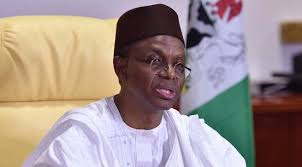Last week, Kaduna State government promised to extend its free education policy to senior secondary schools in the state. Governor Nasir Ahmed el-Rufai, who announced this at the launching of the Girl-Child Initiative in Kaduna, said the policy will be implemented as soon as the state increases its internally generated revenue. He said, “We will ensure that education is free and compulsory at the primary and secondary levels”; adding that “government has identified the dearth of quality and free basic education as an impediment to its continued growth”.
El-Rufai also said, “The large number of our school-age children currently engaged in street hawking or begging and other inhumane practices is appalling and we are taking measures to address this. We have enacted the Street Begging and Hawking (Prohibition) law that will come into effect next month to ensure that every child above the age of 6 in Kaduna goes to school.” He added, “We are convinced that education will not only empower our people and make them more valuable citizens but will also help them make informed choices in life.”
It is cheering indeed to hear that education would be accessed freely especially in one of the northern states where illiteracy rate as well as the number of out-of-school children are both high. It is in this region of Nigeria that street begging, hawking and child labour are seen as alternatives to education of school-age children. Girl-child education is still a cultural taboo in some northern communities.
If most state governments in the country had remained committed in their implementation of the National Policy on Education (NPE), el-Rufa’i’s declaration that Kaduna State government is planning to extend its free education policy to senior secondary schools shouldn’t have arisen. NPE makes 9-year basic education free and compulsory in Nigeria. However, nothing at this level of education in many states suggests that education is free or compulsory. The Kaduna governor’s declaration also stopped short of giving details of what free education for senior secondary students in the state entails. The public is left to guess what it all means.
Governor el-Rufai did say that the proposed free education is going to be an extension of what already obtains in its primary and secondary schools. This therefore means that secondary schools in the state would be at least as free as the state’s basic education schools in Kaduna State. This means free uniforms, free text books and free exercise books for pupils and students in all public schools within the state. If all these in addition to the provision of classroom furniture, reconstruction of dilapidated structures and provision of adequate, well qualified teachers are some of the details that define free education at the secondary school level in Kaduna State, we encourage el-Rufai to commence its implementation as soon as feasible.
Some people are insinuating that the governor’s pronouncement is a campaign gimmick, coming as it does on the eve of general elections, when the governor is running for a second term in office. Even if it is an election gambit, Kaduna State government is pardoned as long as it delivers on the promise soon. We also urge it to consult with relevant stakeholders before deciding on which aspects of schooling to prioritize in its free education policy at the senior secondary level.
We advise Kaduna State government against taking advantage of the free education policy it is proposing for secondary schools to impose unnecessary levies on residents in the state. We equally urge it to put all necessary logistics in place for implementing the policy at the senior secondary level before embarking on it. This is to forestall the policy from going the way its school feeding programme went in 2016. This one is a worthy cause, the dividends of which the state will harvest many years from now.

 Join Daily Trust WhatsApp Community For Quick Access To News and Happenings Around You.
Join Daily Trust WhatsApp Community For Quick Access To News and Happenings Around You.


